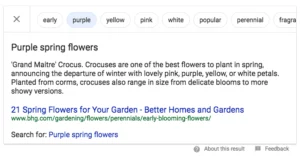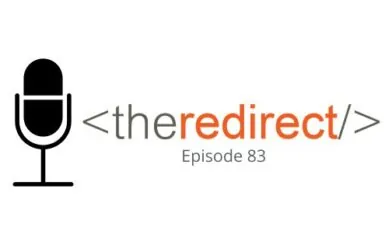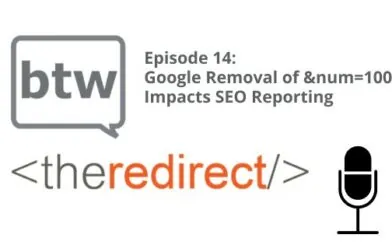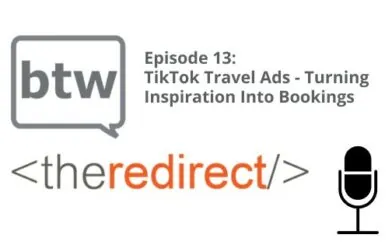Episode 42 / April 13, 2018
Listen now:
Welcome to The Redirect Podcast, where the BlackTruck Media + Marketing team shares recent insights and takeaways from the world of search marketing.
In this week’s episode:
- GDPR – General Data Protection Regulation: What you need to know about data retention and Google Analytics (begins at 2:00).
- Do you “own” your own brand in the PPC space? What to do if competitors are using your name in their paid search strategy (begins at 15:17).
- Google’s featured snippet refinement bubbles streamline the search experience – and keep more search users on Google’s own site (begins at 25:50).
GDPR and You
“Privacy? What’s that?” – Ashley Bovin,
BlackTruck Media + Marketing Content Strategist
Cambridge Analytica and the great Facebook debacle of 2017-18 sure has been an eye-opener for many people and companies, especially those who happen to click through long documents like “Terms of Service” agreements and the like to rush to install an app or just can’t wait to find out “What Harry Potter character are you?” Just what did you agree to anyway?
All joking aside, we have officially “learned the hard way” that what we share online can be used for illegal or unethical purposes. The mining of personal info of more than 50 million users has been deemed the “tip of the iceberg” when it comes to violations of our “privacy” and the parading of Mark Zuckerberg in front of Congress proves not only do most of our elected officials not understand how the internet, apps, and privacy work (it seems that is a bipartisan deficiency), but that we have a lot at stake when vetoing our right to privacy.
Enter the GDPR, or General Data Protection Regulation, which was voted into existence and approved by the European Union Parliament in April 2016 (but doesn’t officially become an enforced policy until May of this year), which threatens to levy heavy fines on those who are not in compliance. Since the internet is not just a local or national thing — it’s a global network — the EUGDPR becomes the new standard for many international organizations. The EUGDPR was designed to protect and empower all EU citizens’ data privacy and to “reshape the way organizations across the region approach data privacy” (EU 2016/679). The implications are significant. In short: The EUGDPR protects anyone who does business within the borders of the EU or does business with EU data subjects — and that is pretty much everyone in a digital world.
So, what does this mean for your West Michigan company? Quite a bit. While you might not think you have a lot of interaction with folks in the EU, chances are pretty good that you have done one or more of the following things….
Keep reading on our guest post over at Grand Rapids Business Journal! (Opens in a new screen.)
Takeaway: Seek legal advice immediately to improve your standing with the GDPR, as the fines are steep.
Do You “Own” Your Own Brand in PPC?
In paid search, what do you do when competitors bid on your brand name? It’s a common practice. It’s widely accepted. You’re probably doing it to another brand; but, what about when you don’t want them doing it to you? How do you handle it? BTM search strategist, Patrick Garrett, shares a few ideas for you from experience and recent reading from Search Engine Watch:
1. Beat them on your own brand names
Once you figure out that you have a competitor out there, start bidding back and own your own brands. It always feels counter-intuitive, but it needs to be done in order for your hard work to be seen.
2. Launch a trademark complaint
This can have unintended costly consequences, but if you have something you cared enough to trademark, then this is 100% the reason why you trademarked it. Protect your assets. Proving your competitor is being malicious could be the hard part, unless they are blatantly using your brand name in their ad copy.
3. Reach out to your competitors
Be nice. You should actually probably start here. Compose a really well-written and POLITE email, go over it with your team to make sure all the touch points are covered, and ask them to stop bidding on your brand name and stop using the brand name in the ads themselves. The worst that could happen is nothing. The best that happens is they take them down.
4. Bid on their terms.
This is not the option you want, because you both end up losing, and Google wins big time. Why, you ask? Because you’ll drive UP costs per click, causing you to spend more for less, putting more money in the pockets of Google.
Takeaway: When all else fails, talk to your peers and create a strategy to own your own brand!
April Showers Bring Google Flowers?
Ashley, our content strategist, noticed that it appears that Google is rolling out Featured Snippet Refinement Bubbles, which were previously tested and noticed back in September, and announced by Google back in January. Read more from Search Engine Roundtable.
Though this feature is not yet available to everyone, people are seeing it on desktop and mobile.
To check it out, Ashley performed a desktop search for “spring flowers” to brighten up her grey Michigan day. Keep an eye on those little bubbles in the screenshot.
Initial snippet result for “spring flowers”:

Refined by clicking the “purple” bubble:

Refined by clicking the “perennial” bubble:

You can see that as she refined the search within the featured snippet from “spring flowers” to “purple spring flowers,” to “perennial spring flowers,” the results show information from three different domains. This is just one more example of Google keeping searchers on their search results pages.
Takeaway: This is a positive development in that it helps searchers further refine their queries to better find what they’re looking for. And it goes without saying that Google is likely keeping track of how users interact with this feature to hopefully better refine search results on the first try in the future.
Thanks for tuning in! To catch future episodes of The Redirect Podcast, subscribe on SoundCloud, iTunes, or Stitcher.



